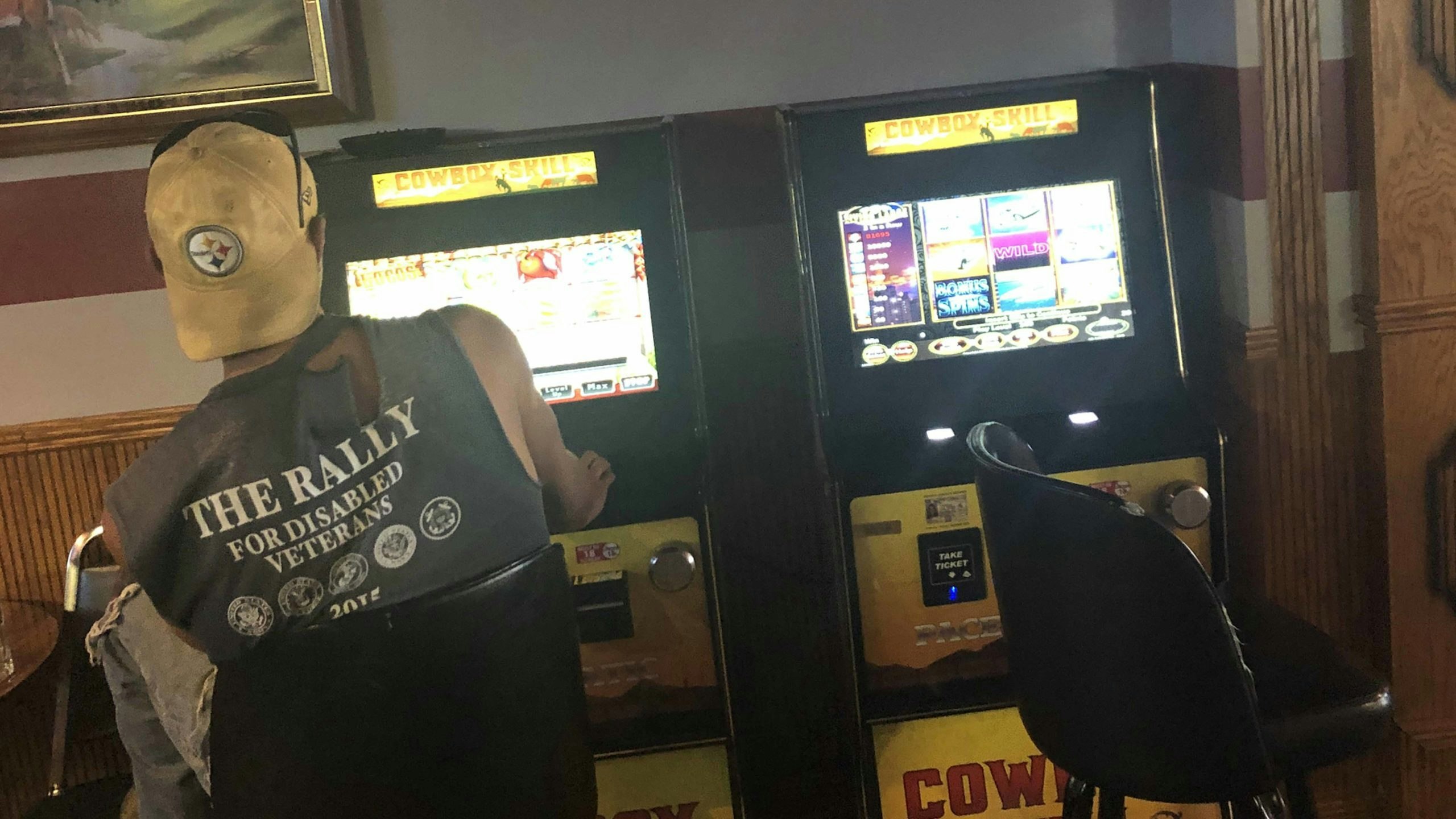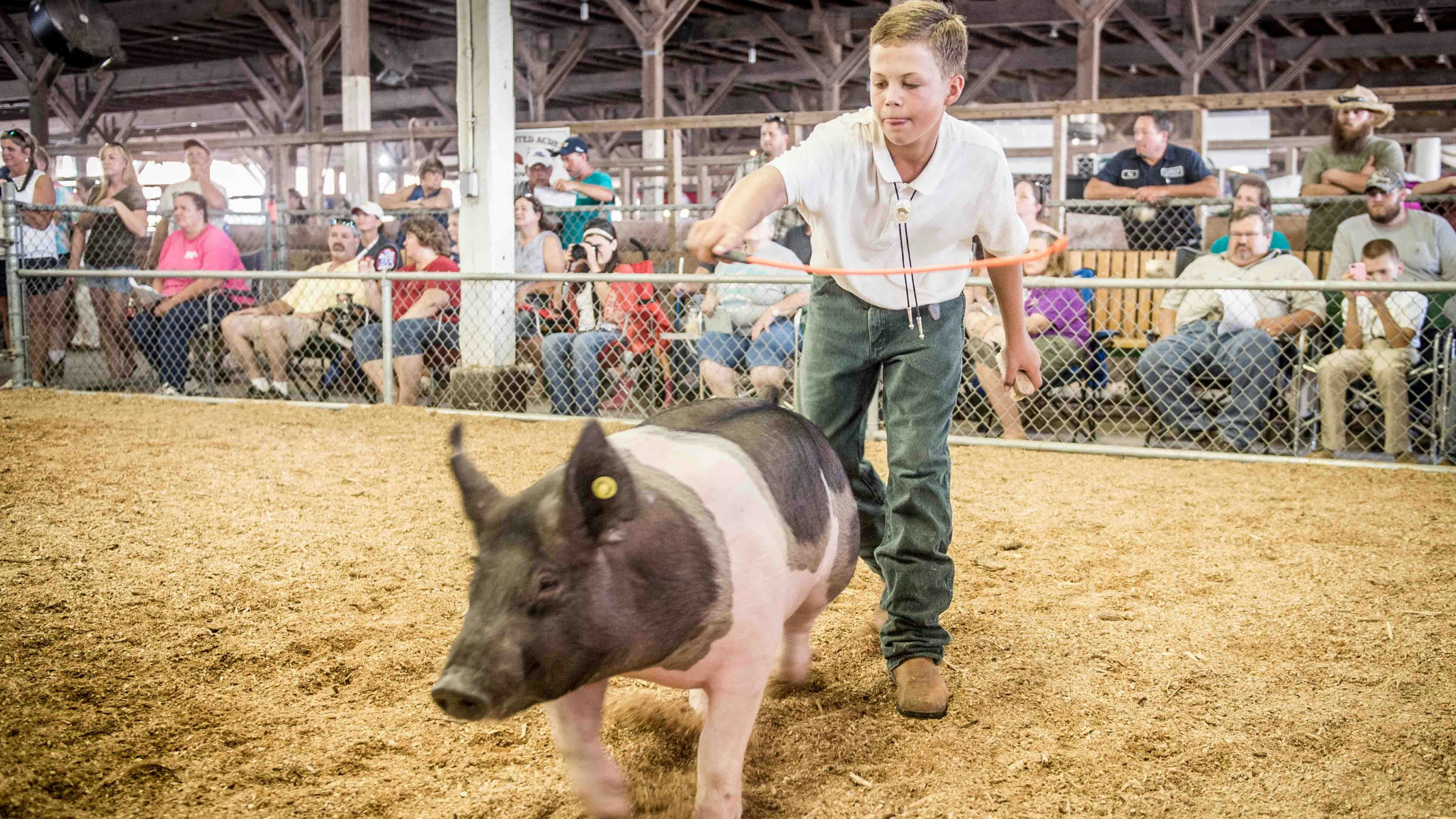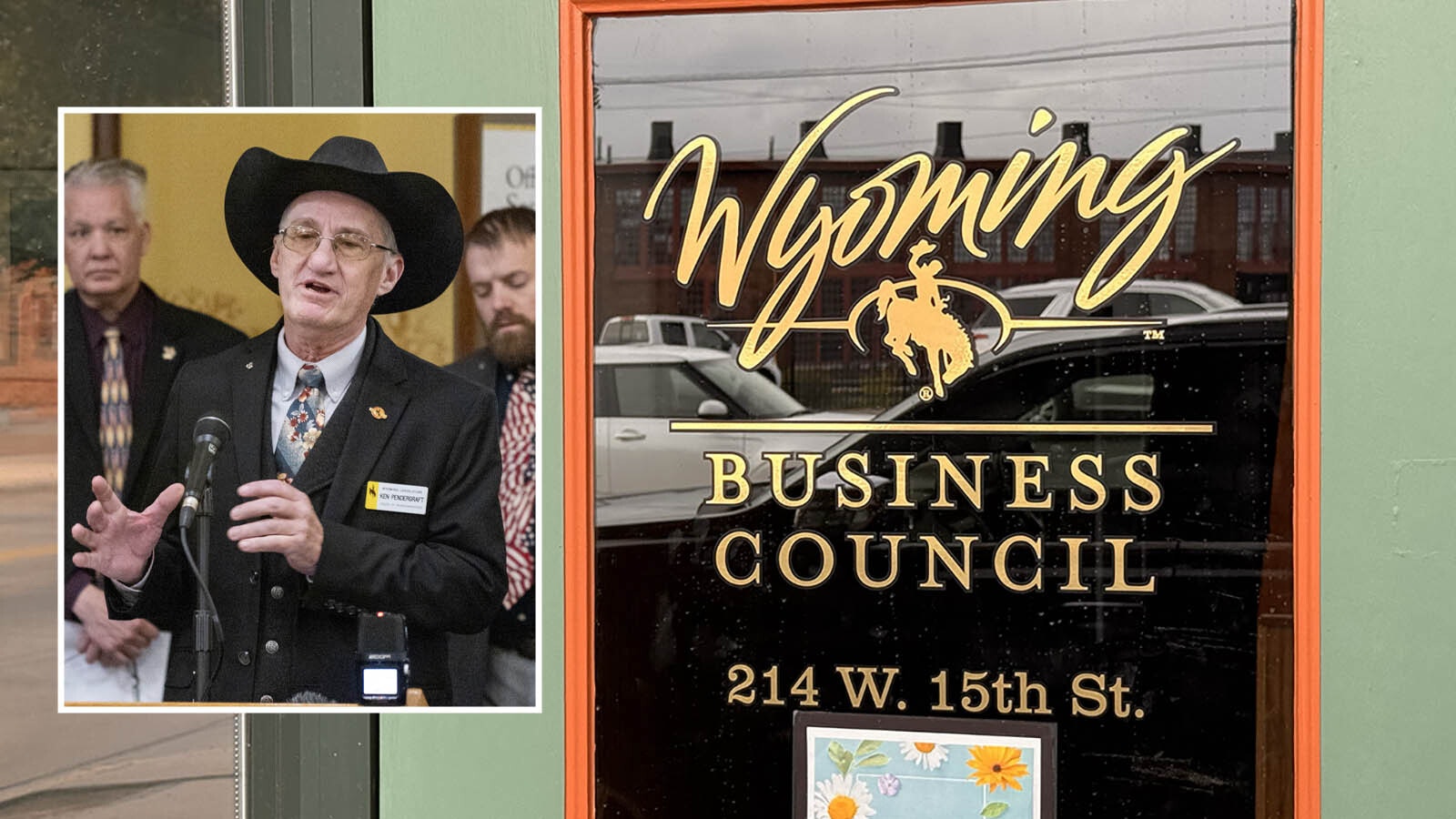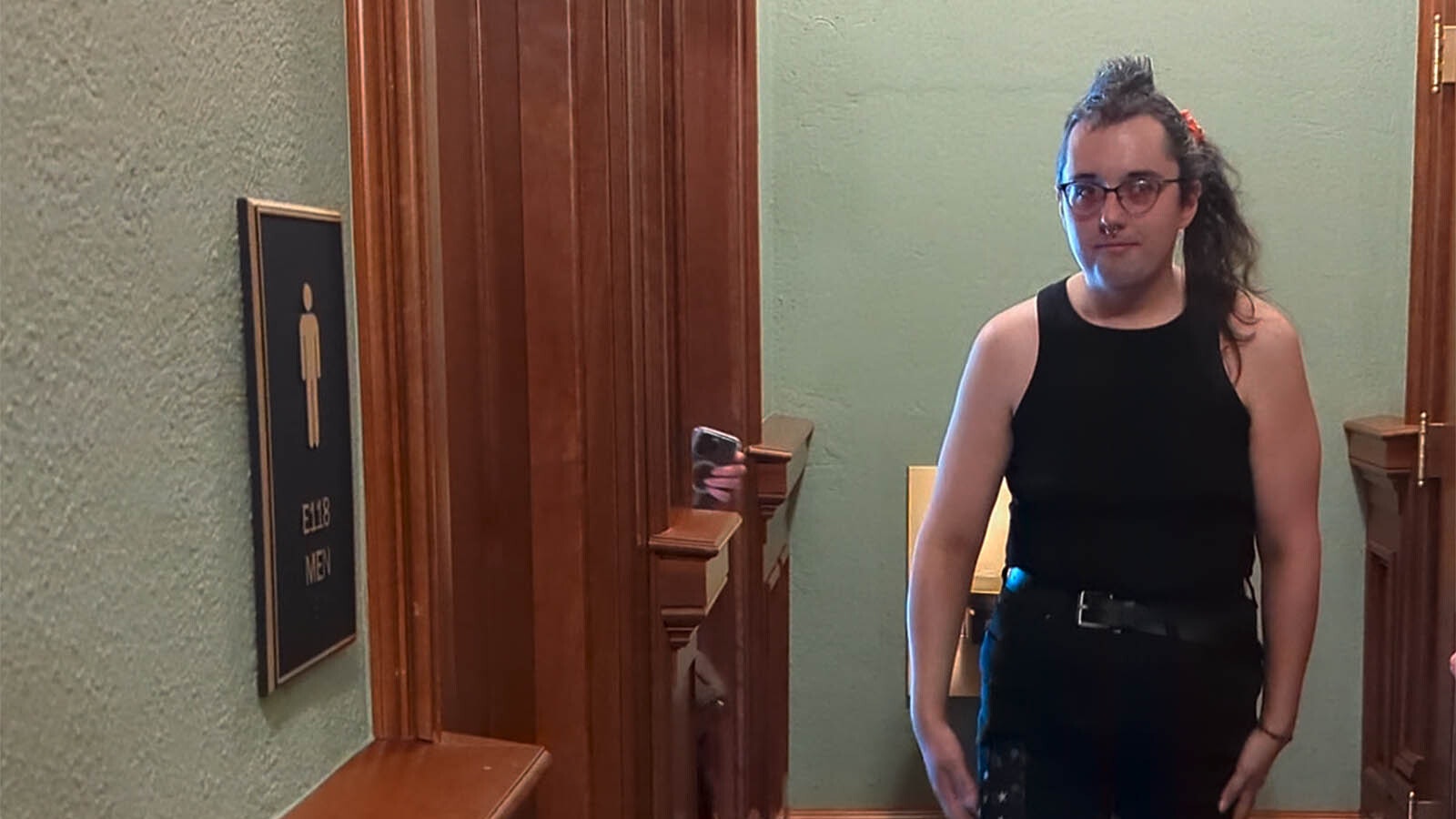There’s a commonly used phrase in Wyoming that’s it’s easy to let a horse out the barn, but much more difficult to get it back into the stables.
In many ways that describes the state of gambling in Wyoming, which has grown into a more than $1 billion a year industry. This also has happened without very little added oversight from the state since some forms of gaming were legalized in Wyoming.
Over the next few months, the Wyoming Gaming Commission will engage in a Gaming Expansion Study to see what even further expansion of Wyoming’s gaming industry would look like and whether it should. The nature of the study came under the scrutiny of the Legislature’s Joint Appropriations Committee on Tuesday.
Legal gaming now comes in the form of skill-based games, parimutuel gambling, live horse racing and sports gambling in Wyoming.
Under The Scope
The current structure of the Gaming Commission and its relationship would be analyzed under the study, as would regulation of all wagering activities in Wyoming.
Former House Speaker Tom Lubnau, who also serves as a liaison for Gov. Mark Gordon to the Gaming Commission, said this group needs policy guidance, which is a viewpoint shared by Gordon.
“I don’t believe it’s their job to set Wyoming policy,” he said.
Lubanu said Wyoming needs an overarching framework for its gaming laws across the state, instead of piecing together various laws over time. He also wants a more clear vision of whether the state is on the road to full legalized gambling or not, and what level of gaming it wants to have.
“Gaming is just reallocating money from unlucky people to lucky people with the operators taking out a commission as it goes through,” he said. “How much of that occurs before it becomes a big toll on Wyoming paychecks?”
He also said there’s some real social costs to expanding gambling that Wyoming needs to consider.
“I think we’ve done a very good job in this state staying ahead of things, but the growth is just so big and the dollars are so huge,” Lubnau said.
Economic benefits of expanding gaming will also be considered in the study, as will whether the current level of growth is viable and sustainable while considering the “cannibalization of other viable and economically feasible entities,” said Nick Larramendy, deputy director of the Wyoming Gaming Commission.
It will also consider potential gaps in state law and the management of horse tracks and their overall safety.
A January public records request from anti-horse racing advocacy group Horseracing Wrongs revealed that 14 horses died at Wyoming race tracks during the 2023 season.
Where It’s At Today
As of 2023, there were 2,486 historic horse racing gaming terminals at 43 Wyoming locations.
A total of 98% of the Gaming Commission’s overall revenues since 2013 can be attributed to proceeds of historic horse racing, which is wagering on previously held races from around the world.
From 2013-2023, revenue from historic horse racing provided $69.8 million for local governments and another $36.3 million to Wyoming state government.
Macrina Sharpe, an attorney representing Wyoming Horse Racing LLC, said a recent study compiled by her industry showed that in 2022 horse racing generated around $150 million in overall economic impact for Wyoming.
Live horse racing is a much more modest enterprise revenue-wise. In 2023, it garnered $2.3 million in total revenue, of which only $35,902 was disbursed directly to the state. This is mostly due to the expensive nature of operating this sport, running around $1 million to $3 million to run a horse track for one season, without counting award purses, which can run around $6 million alone over the course of a season.
Thus, HHR subsidizes live horse racing for Wyoming’s three operators and the state, as multiple track owners testified that live racing doesn't garner a standalone profit in most circumstances.
Sharpe said Wyoming’s operators are spending about 20% to 25% of their gross revenue in taxes.
“When we start looking at that even more and more money going to the state, I think that’s worth keeping in mind how much we pay,” she said.
Nick Hughes, owner of Wyoming Horse Racing, said his industry is looking to expand its revenue, not necessarily its footprint. He mentioned how his facilities are now drawing users from Colorado who might otherwise go to Blackhawk Casino for their gaming purposes.
In 2020, the Legislature authorized “skill-based gaming,” which refers to a commercial electrical gaming device located at a bar, truck stop, or other licensed establishment, where the skill of the player, rather than any inherent element of chance, is the primary factor in determining the outcome. The next year, 1,247 terminals were authorized at 354 locations.
A total of 20% of revenues are transferred weekly back to the Gaming Commission, of which 45% is delivered to the School Foundation Fund, and another 45% to local governments where the games are located.
In 2021, the Legislature authorized online sports betting. In its first three years, sports wagering made more money than skill-based games, but skill-based provided more overall revenue for the state as it’s taxed at a higher rate.
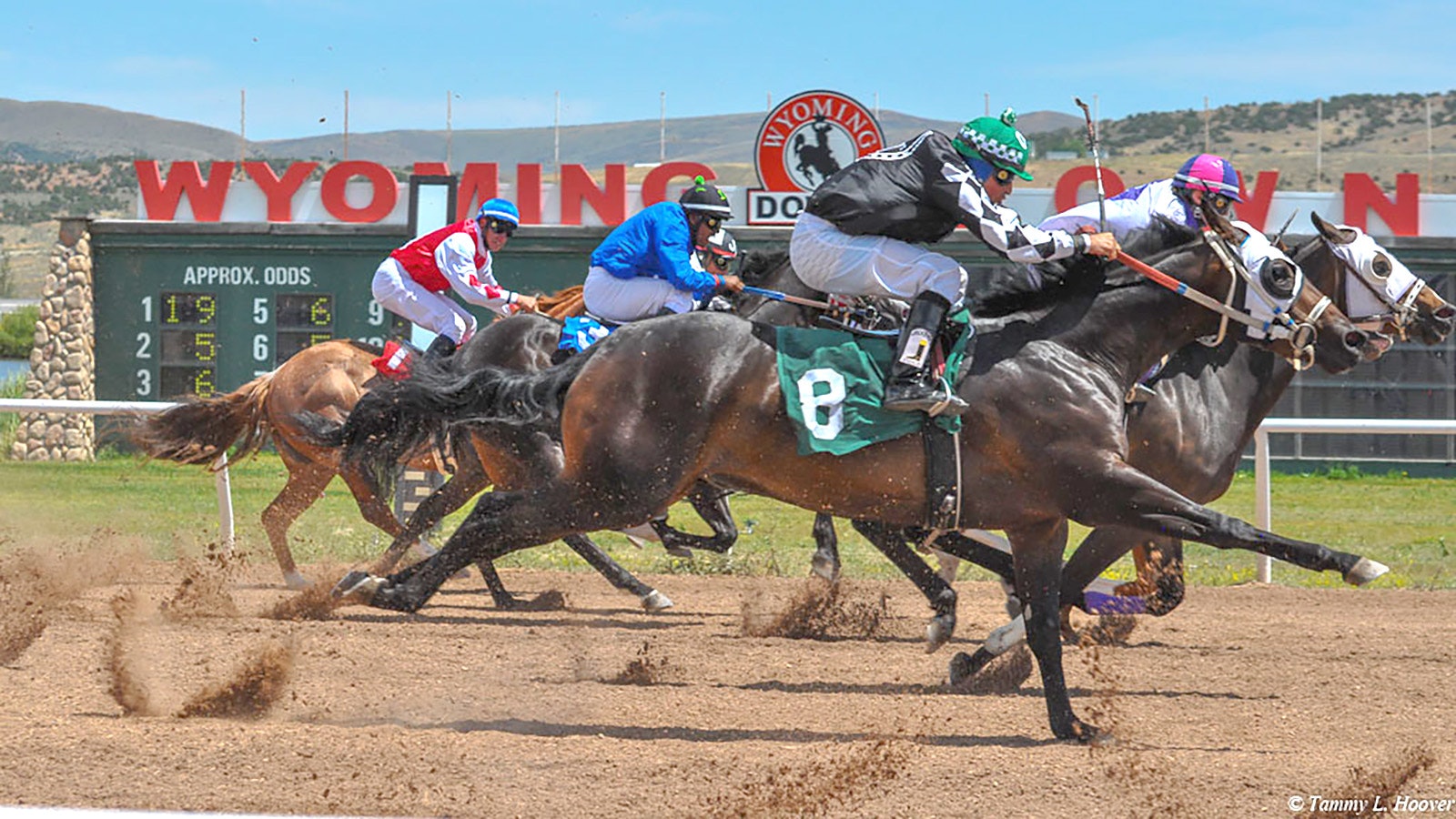
The Study
Rep. Lloyd Larson, R-Lander, said the study should not only consider market-driven factors, but also take a larger snapshot of what the public at large finds best for regulation.
“Should we have it opened up like our neighbors to the north in Montana where gaming is pretty common?” he questioned.
Wyoming Gaming Commission Executive Director Charles Moore said this was the original purpose in drafting the study.
Moore said he sees the purpose of his organization to protect the welfare of gaming participants and all residents of Wyoming.
Larson agreed that’s how gaming should be enforced but then asked Moore what he sees in the value of gaming as a whole.
He also expressed concern that there was no consideration for the social impacts of expanding gambling in the study proposal provided to legislators on Tuesday and said he was curious why this wasn’t considered.
Larramendy said these will be considered in the request for proposal for the study.
The study contract is expected to be awarded by late June and the study itself completed by Sept. 1.
The Gaming Commission is also developing new rules that would come out after the study is completed.
Larson and Sen. Dave Kinskey, R-Sheridan, expressed concern that the Gaming Commission could end up making major policy changes only shortly before the start of the 2025 legislative session.
Moore said he understands this sentiment and doubts any major rule changes will take place, but couldn’t make any promises.
Possible Limits
Unlike skill-based amusement games, Wyoming law puts no limit on the amount of locations or the number of historic horse racing terminals allowed at each location. Maximum wagers and jackpots are also unlimited. Rep. Clark Stith, R-Rock Springs, said one of the policy questions legislators may grapple with this year is whether there should be any limit on the number of racing terminals a facility can have.
For parimutuel and historic horse racing (HHR), users only have to be 18, but for skill-based, participants must be 21.
Rep. Tom Walters, R-Casper, who brought the bills legalizing skill-based and HHR gaming, said this was because most of the skill-based games were located in liquor establishments.
Mike Kahler, Wyoming senior assistant attorney general, said relatively few legal issues have come up with these types of wagering or sports gambling since their legalization.
Historical Background
Legal gambling was first established in Wyoming in 1967 with the legalization of parimutuel wagering. With that, the first iteration of what is now known as the Gaming Commission was also established. The department now has a full-time executive director and other staff.
That year, the Legislature also authorized live horse racing. Despite some early success and legislative changes favoring Wyoming-bred horses and multiple wagering opportunities, the participation in this sport declined to the point that by 2010 there was no live horse racing in the state.
Karen Vaughn, a staffer with the Legislative Service Office, said the Legislature’s creation of a source market fee for out-of-state simulcastors who took bets from Wyoming residents saved the live horse racing industry.
Shortly after, live horse racing gradually picked back up in Wyoming.
The Legislature’s official authorization of historic horse racing in 2013 had an even more positive impact on live horse races in Wyoming, increasing the number of race days to 10 in 2013, 20 in 2014, and reaching 50 annually by 2021.
Sen. Jim Anderson, R-Casper, a former horse track operator, said historical horse racing has revitalized the live horse racing industry in Wyoming and thus, should not be considered the same as other forms of gambling. He sees other forms of gambling, which he doesn’t support, as problematic because they don’t support live horse racing like HHR.
“HHR and live racing is completely different from all these other gaming things we have going on,” he said.
But since 2021, total race days in Wyoming have only increased by four among the state’s three operators.
State law requires any organization that receives a historic horse racing permit to already have a live horse racing permit as well, and to host 16 live race days each year. Vaughn confirmed that the creation of HHR was to support the live horse racing industry in Wyoming.
Larson criticized this arrangement and said he doesn’t see the number of live horse racing days increasing much, while HHR gaming has increased significantly.
“You would think one would spawn growth in the other,” he said.
Patrick Leckrone, chief executive officer of Northern Arapaho Enterprises, which runs the Wind River Casino, said as HHR’s have increased around the state his casino’s revenue and number of customers have declined on an almost one-for-one basis.
Breeders Cup
Live horse racing owners and trainers also receive a share of their horse racing proceeds through the Breeders Award Fund, which is awarded based on performance and participation, and has increased every year since 2016. About $6.8 million is being disbursed statewide from the 2023 racing season.
Moore said several hundred people receive a share of this money, with the top recipient receiving more than $300,000 for their racing performance. This was separate from the prizes given for individual races, with some larger than $200,000 a piece.
Rep. Bob Nicholas, R-Cheyenne, requested better transparency from the Gaming Commission about where live horse racing sits in Wyoming today.
“All we see is it’s going from $2 million to $5 million to $6 million to now $7.8 million and we’re going, wait a minute, when’s that going to end and who’s the beneficiaries?” he questioned.
Nicholas said he wants the money disbursed primarily to high-end racers to encourage the highest quality of racing possible.
To participate in the Breeders Award, horses must be Wyoming-based and can only leave the state upon notification to the Gaming Commission.
Private Gambling
Kahler said he hasn’t seen an instance where social gambling activities such as informal poker games, super bowl squares, March Madness or other sports pools, or friendly bets between friends and family have been cited as illegal by law enforcement in Wyoming.
Kahler also said these informal gambling activities have increased in Wyoming in recent years.
These bona fide social relations are not defined under Wyoming law. Colorado law stipulates that a social relationship must run independently to the gambling relationship, such as the example of a workplace sports gaming pool.
“You can’t just show up and have this social relationship because you’re there to gamble,” Kahler said.
Leo Wolfson can be reached at leo@cowboystatedaily.com.

